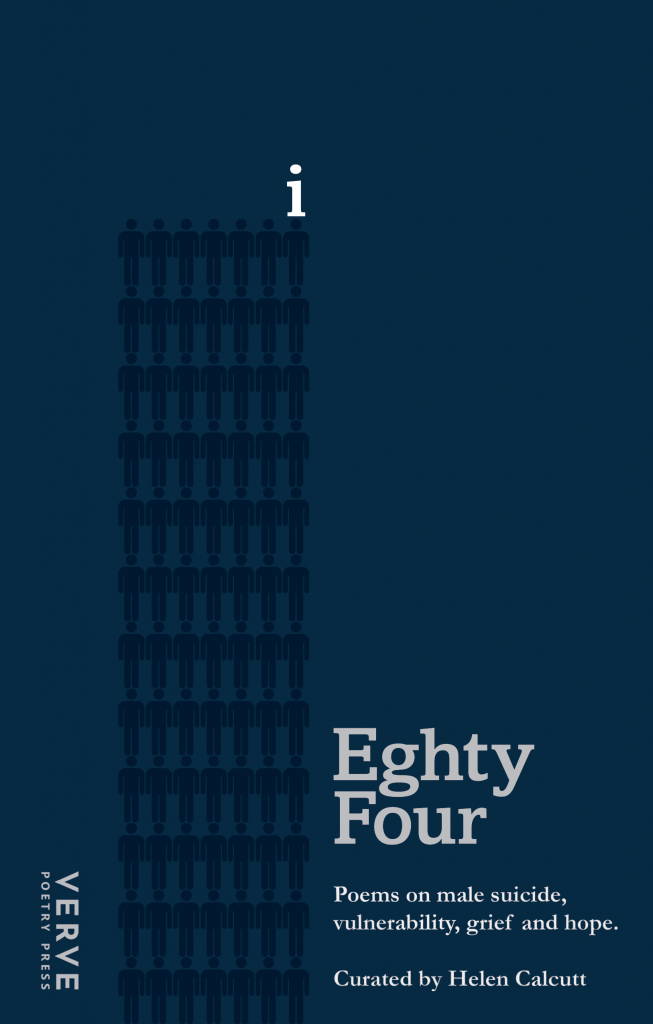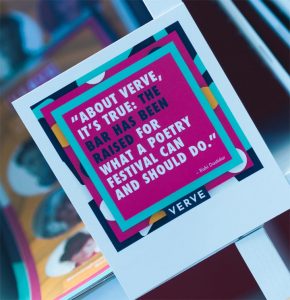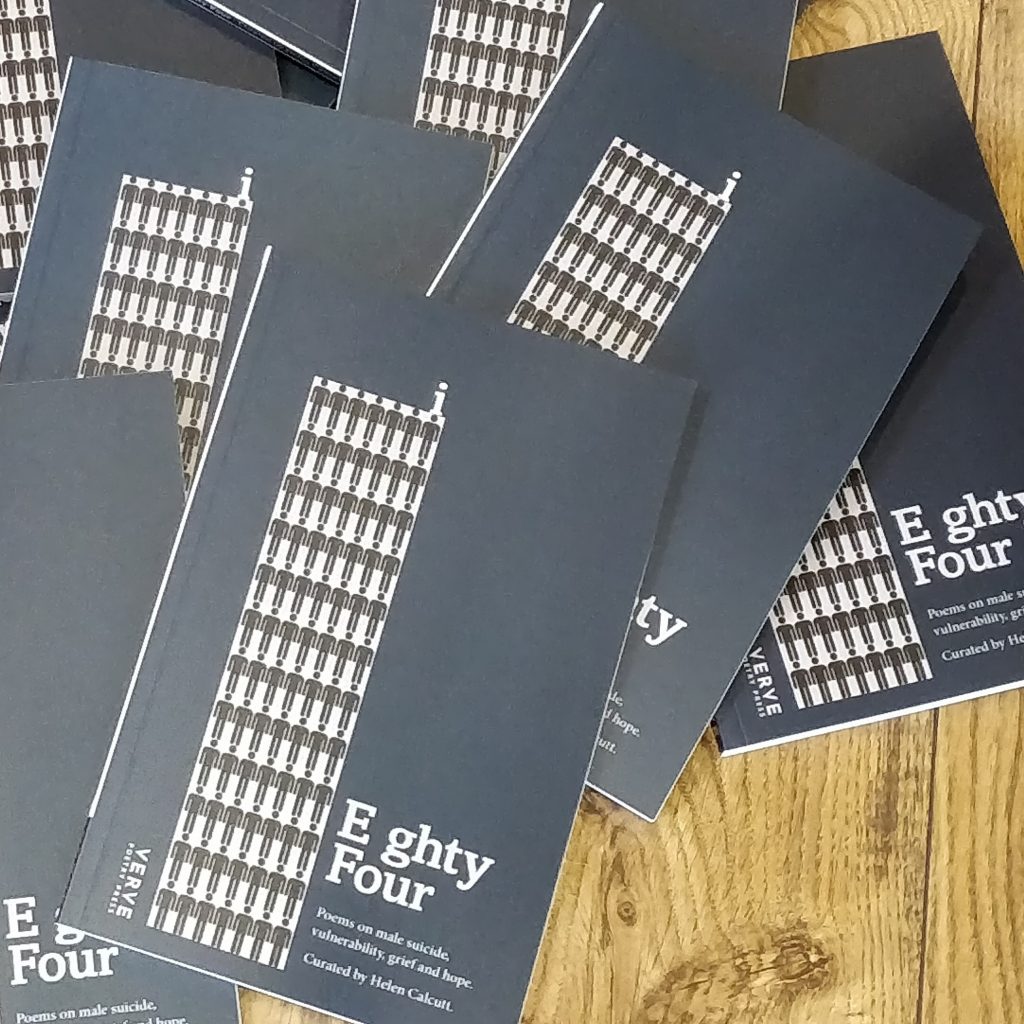
Helen Calcutt’s introduction to the anthology she instigated in aid of a cause so very close to her heart demands to be read. It eloquently and passionately states her reasoning behind and hopes for this unblinking but hopeful collection of poems and some of the background about CALM’s fight to raise awareness around this important issue. As such, we have decided to reprint it here in its entirety. Read, digest, and then please help by buying this incredible book. Help us help CALM. And most importantly of all, help yourself. Verve Poetry.
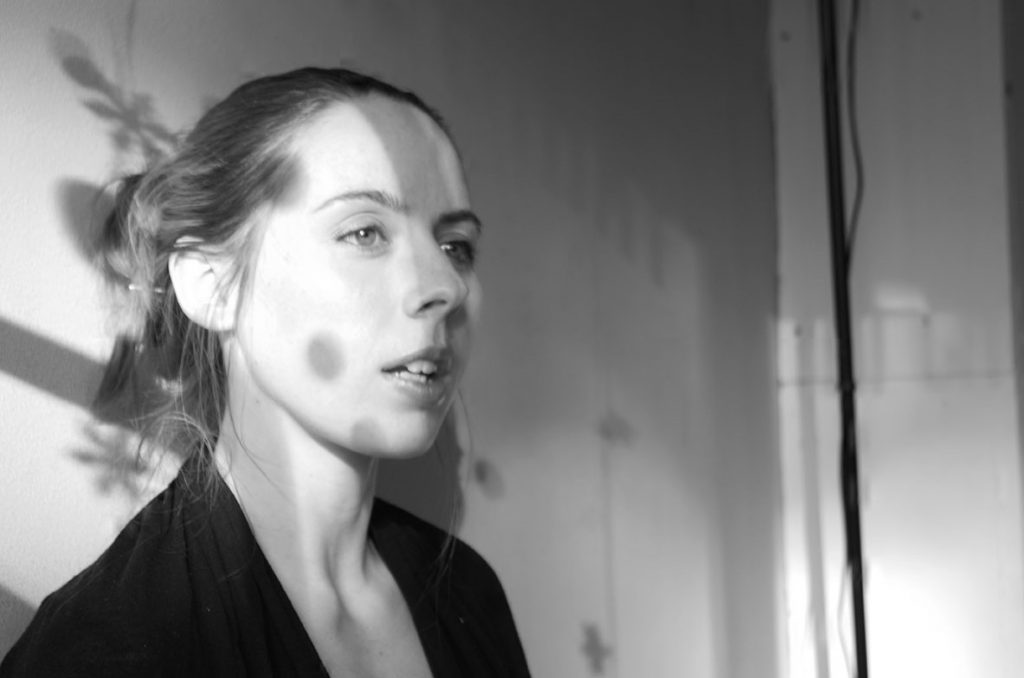
A few weeks after my brother Matthew died, my daughter told me she could see his face in the moon.
Days later, when she spied its silver disc in the window again, she said, that actually, it wasn’t just his face she could see. Everyone who had ever been sad was up there.
The moon changes, and so too, do all the people in its glow.
And that was when I realised ….
We all suffer. There’s this idea that the personal blow of death, or a trauma, can’t be relatable. And with society’s insufferable ignorance to human vulnerability (especially male vulnerability) it’s difficult to see how this could ever change. But I feel it can, if we stop the bullshit. If we accept the reality of the human condition – that it’s a diverse, beautiful, troubled, elated, mish-mash of a being – and if we live by its natural demands, we can influence what is considered ‘normal’ behaviour. What currently stands as such has been working against us for generations, and ultimately, brought us to the mental health crisis we find ourselves in today.
There are other factors to this issue – foremost, lack of funds to mental health services. But change starts with the individual, and this is one of the reasons I created this book. I received little-to-no help from any authority or public service after my brother killed himself. The doctor signed me off for three weeks and I was offered pills. What does this do? This response, though an initial kindness, had no relevance whatsoever to the patterns of my complicated grief, and this signalled a twisted understanding of it, or worse, a normalised ignorance to my vulnerability, in all its ugliness and truth. It also exposed a desire to sweep the problem under the carpet. As was the police’s response after my brother was found. Male dead, domestic tragedy. Tick the box. Move on.
It’s my understanding that, at present, society is shaped to deny us our defining human quality: our complexity. To be human is to be vulnerable. It is also to be aggressive, quiet, commandeering, violent; it depends on the circumstance you find yourself in. But these are all naturally existing, powerful sides to us. For whatever reason, society encourages an over-simplified existence, thus generating accepted ‘norms’ to our behaviour. We live, we die. We weep, we laugh. We suffer, we feel joy. It would seem we’re only ready to acknowledge and celebrate three of these six crucial human emotions.
And the desire to live up to this warped standard of being has sadly become greater than the desire for truth.
Women cry, men do not. Men hit women, women don’t hit men. Both examples of what we would consider a socially accepted norm, denies either party their natural complexity. Women do hit men, and though a violent and harmful act, it also highlights a particular type of vulnerability (perhaps a trauma too) that needs addressing. Men weep. It’s probably one of the deepest, moving sounds I have ever heard. Denying this as a normal attribute to male behaviour, almost refuses them the basic right to grieve, to shed a skin – to let it out. Grief isn’t just about death either. The effects of grief and trauma are very present in the body and mind of someone who has suffered divorce. The loss of a life we love, either from sudden house eviction to an extra-marital affair, can take 12 months at the very least, to overcome. We can even grieve, deeply and with absolutely profundity, the loss of our former selves in the wake of any personal travesty.
Not acknowledging the many possibilities, the many realities, to inner turmoil, is damaging. It represses and confuses us. Suicide rates are through the roof in the U.K. Male suicide stats are particularly devastating. 84 men kill themselves a week, my brother being one of them. The reasons why he did it, are complicated. And unknowable to us in many ways. But I will say, that the pressures of a society largely unwilling to accept the anxiety and despair of a ‘man’s man’ (holding down a job, a mortgage, child-care) will have had something to do with it.
The more we work to a fixed behavioural and emotional ‘standard’, the more we squash the natural intricacies of the broader human condition—not honouring or respecting who, and what we are. It’s time we changed that. After putting out the call for submissions and contributions to this anthology, I can see I’m not alone in my thinking.
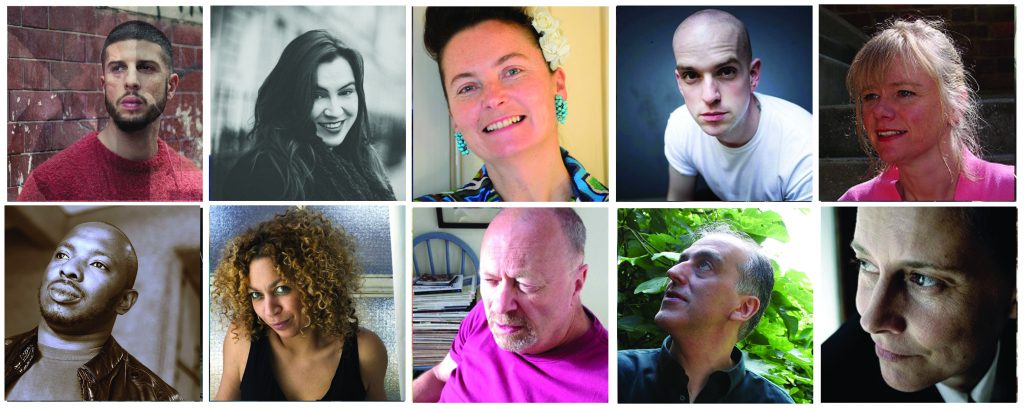
The many poems I received, felt ready-made. Like they had been waiting at the bottom of a draw for the perfect opportunity and place to speak. I’m glad those who submitted felt this was it. The poems published here, and the adjoining blog, have given this book the truth it was seeking, showcasing humanity in all its vulnerable beauty. From the baby in the bath who knows that daddy is gone, to the woman whose father haunts her like a wolf through the window, anthology Eighty-Four gathers an exquisite collection of voices, singing completely different hymns, but together creating a sincere and authentic piece of music. From well-known poets, to new voices, there’s a glittering strength of character to this volume, because of the honesty from which its poems have been created, courageously and delicately embracing human complexity in all its forms.
I knew immediately the title would be ‘Eighty-Four’. Inspired by the success of the #MeToo anthology, I wanted to create something for a specific cause, that honoured and supported Project 84, by the charity CALM (campaign against living miserably) and drew attention to an issue in the only way I knew how: through poetry. But, for me, this number represents more than a devastating statistic. 84 men lost to suicide a week isn’t a simple black and white problem. And the problem itself, isn’t a symptom of any single cause. It’s part of a wider dilemma, acutely connected to our almost pathological denial of human fragility (connected perhaps, to our fear of immortality and death). If you’re reading this, you may not feel an immediate emotional connection to male suicide. But you can understand the prevalence and seriousness this number holds. You might also start to understand what it means for us as a society, and share in asking the crucial question: how shamefully oppressive have we allowed the world in which we live, to become?
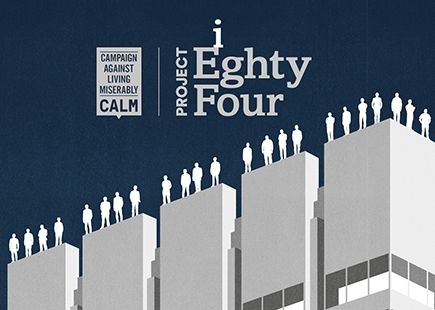
Together, with the creative minds at Verve Poetry Pres, CALM, and my wonderful father and co-editor, we have created a book that, in opening its doors to the devastating theme of male suicide, has inspired a river of additional sub-themes and contexts: all relevant and connected to the central theme. At one stage, I considered grouping the poems under different chapters. But with time, I saw this wasn’t necessary. Anthology Eighty-Four has taken on its own life and shape, with each new phase of reading, though distinct, somehow aligned and in harmony with the one before it. There are poems here that sing to each other. Words and images that relate, yet with their altered backdrops, offering new perspectives. There are clear changes in voice and tone: the angry man, to the angry bereaved. This kind of opposition (or ‘balance’ as I like to call it) gives this anthology the emotional range it deserves, and is an authentic reflection of the overwhelmingly diverse, and sustained affects of suicide. Each poem conducts its own careful truth, told with searing conviction. Light and shade.
This book is for every single person who has ever felt silenced. For anyone who feels uncomfortable talking about trauma or grief, to those currently suffering from grief-by-suicide, or who want to learn more about mental health issues. Let this be your touch-stone. Not only does it prove how powerful poetry can be in bringing our injured worlds into view, it also exposes a new, hopeful reality. Saying to you – start talking and keep going. Live through and voice your vulnerability. Speak and live your humanity.
This book is also for Matthew. The older brother who was always giving. The first one to call me and tell me everything was going to be okay when I was pregnant. Whose laughter filled the room and infected every single person in it. Who was honest about not liking poetry. Who listened, and reserved judgement. Who was open and giving to every other human flaw, right to the end. Just look how this generosity has inspired others and lived on.
Helen Calcutt (December 2018).
Full list of poets included (A-Z): Anthony Anaxagorou, Romalyn Ante, Casey Bailey, Abie Budgen, Lewis Buxton, David Calcutt, Helen Calcutt, Louisa Campbell, Diana Cant, Garry Carr, Stewart Carswell, Gram Joel Davies, Michelle Diaz, Glyn Edwards, Carrie Etter, RM Francis, Alan Girling, Salena Godden, Emily Harrison, John Hawkhead, Martin Hayes, Alastair Hesp, Shaun Hill, Paul Howarth, Rosie Jackson, Janet Jenkins, Helen Kay, Asim Khan, Charles Lauder Jr, Hannah Linden, Jane Lovell, Nick Makoha, Liam McCormick, Andrew McMillan, Abegail Morley, Katrina Naomi, Antony Owen, Isabel Palmer, Ian Patterson, Mario Petrucci, Zoe Piponedes, clare e.potter, Peter Raynard, Brenda Read-Brown, Victoria Richards, Belinda Rimmer, Bethany Rivers, Stephen Seabridge, Richard Skinner, Caroline Smith, Janet Smith, Joelle Taylor, MT Taylor, Christina Thatcher.

